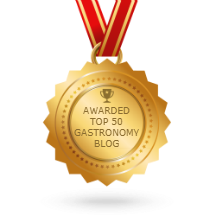Fall, 2006
With the publication in the U. S. of four more major Spanish cookbooks in the past several months, the good news for Spanish gastronomy and food products just keeps coming. For years, the only serious Spanish cookbooks that one encountered in the major bookstores were those of pioneer author Penelope Casas, whose body of work grew to more than half a dozen high-quality interpretations of Spanish cuisine over a period of some twenty years, including last year’s La Cocina de Mama. During the same period Janet Mendel, who lives in the village of Mijas on the Costa del Sol, was also publishing several Spanish cookbooks, but their circulation was confined mostly to Europe until recently.
Then came Teresa Barrenechea’s The Basque Table, which joined Colman Andrew’s classic Catalan Cuisine, in highlighting Spanish cuisines regional distinctions. And with the publication in English and importation of new wave cuisine books in Spanish–such as those by super star chef Ferran Adrià on his world-famous restaurant El Bullí–the library of culinary writing on Spain (coupled with its international acceptance as the new culinary mecca), has grow exponentially to lay the foundation for this year’s explosion of new literature. Now, four excellent new books are on the market: Teresa Barrenechea’s The Cuisines of Spain>: Exploring Regional Home Cooking (Ten Speed Press), Janet Mendel’s Cooking From the Heart of Spain, José Andrés’s Tapas: A Taste of Spain in America, and Anya Von Bremzen’s The New Spanish Table, all of which call for Spanish products and list American purveyors where readers can find them.
Barrenechea’s The Cuisines of Spain has the endorsements of four of Spain’s three-star chefs: Ferran Adrià, Juan Mari Arzak, Martín Berasategui and Santi Santamaría. Adrià wrote “Barrenechea captures the essence of our country’s authentic regional cooking in a way never before accomplished.” And Arzak says she has “transmitted the true essence of our regional cuisines through this book.” Barrenechea, in Chapter Two, The Spanish Kitchen has valuable essays on such Spanish ingredients as extra virgen olive oil, sherry vinegar, Spanish cured jamones (both Serrano and Ibérico), piquillo peppers, pimentón de La Vera (paprika), esparragos de Navarra and azafrán (saffron).
Janet Mendel, in her Cooking From the Heart of Spain, emphasizes that “La Mancha’s culinary roots are rural, but beneath their sturdy simplicity, a rich Moorish and Sephardic heritage imbues Manchegan cooking with an aroma of refinement, of delicate complexity. Some of Spain’s most outstanding products come from this region,” Mendel says, “Manchego cheese, saffron, fine wines, serrano ham, and extra virgin olive oil. To give the foods a sense of place, I tell stories about an artisanal cheese maker, a revolutionary wine maker, harvesting saffron, trout fishing, a partridge shoot and making Marzipan in Toledo.”
José Andrés, star of his own wildly popular Spanish television cooking series, Vamos a Cocinar, and executive chef of Washington, D. C. ’s Jaleo, Café Atlantico and its renowned avant-garde tapas Minibar and several other restaurants in the nation’s capital, was recently named Chef of the Year by both Bon Appétit magazine and the Restaurant Association Metropolitan Washington (Rammy awards). His Tapas: A Taste of Spain, Andrés concentrates on modern small-plate tapas such dishes as lobster with clementines and grapefruit in saffron oil, slow-roasted beef tenderloin with Cabrales cheese and octopus with Spanish extra virgin olive oil and pimentón).
To promote her book on Powells bookseller’s website (Powells.com), Anya Von Bremzen, in a wonderful essay about her experiences in writing The New Spanish Table, wrote “Experimental chefs swoon over the luminous quality of native (Spanish) ingredients and the rigorous simplicity of classic preparations — hanging out at old tabernas, tascas, and tapas bars along with the rest of Spanish gourmands. Meanwhile, owners of old-school restaurants send their children and business heirs to apprentice with new-wave maestros for progressive kitchen tricks. I don't know any other place on the globe where the union of old and new is so strong. In the end it's this marriage of tradition and innovation that makes eating in Spain such a thrilling adventure.”
Von Bremzen’s essay sums it up very well. These days, eating in Spain and the quality of Spanish ingredients is indeed is indeed “a thrilling adventure.”
A LENTEN DISH THAT’S GOOD ANYTIME
-
Good combo--clams with beans.Lent, Cuaresma, when it's customary in Spain
to eat fish and shellfish and abstain from meat, is nearly over. Easter
(Pascua ...












No comments:
Post a Comment